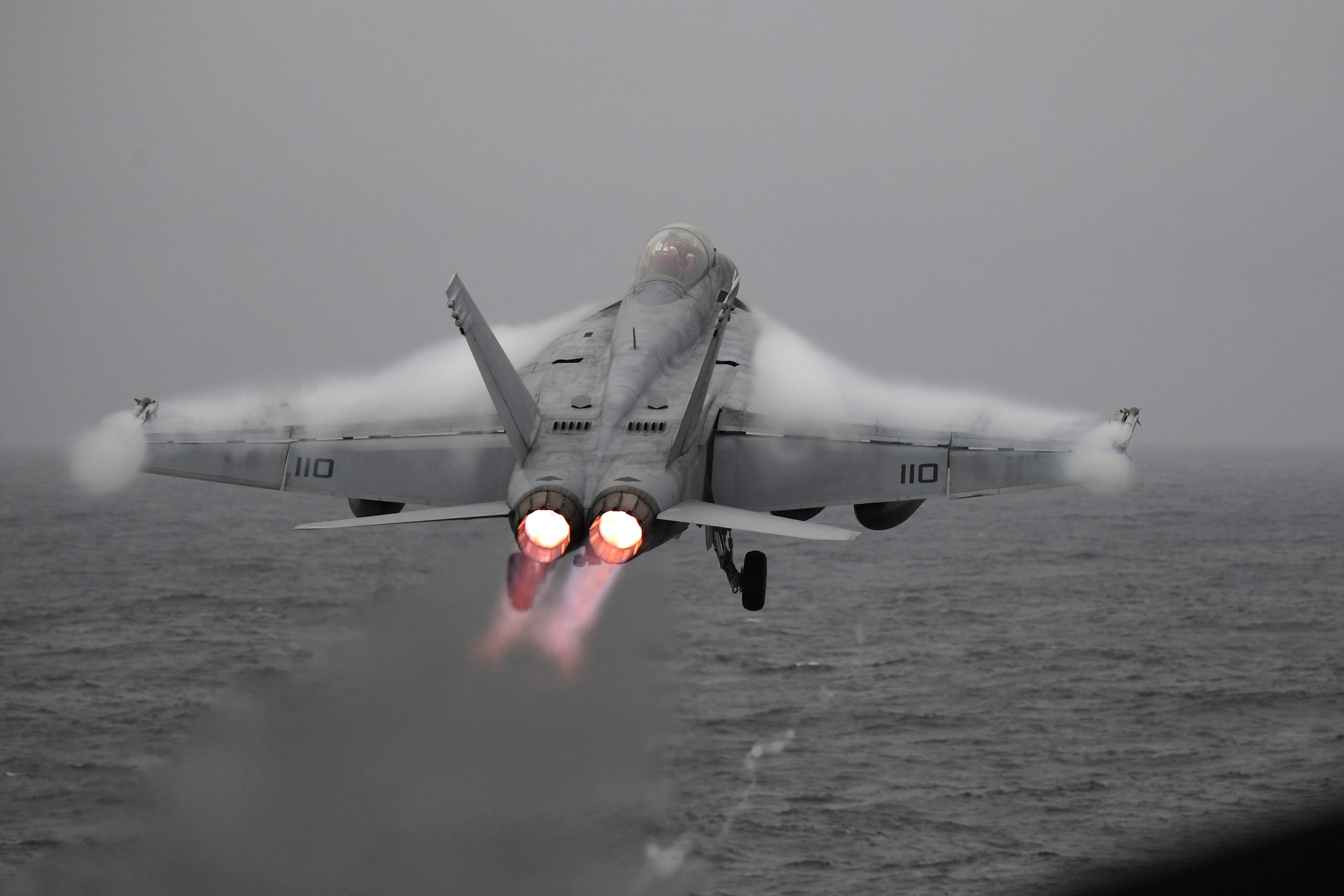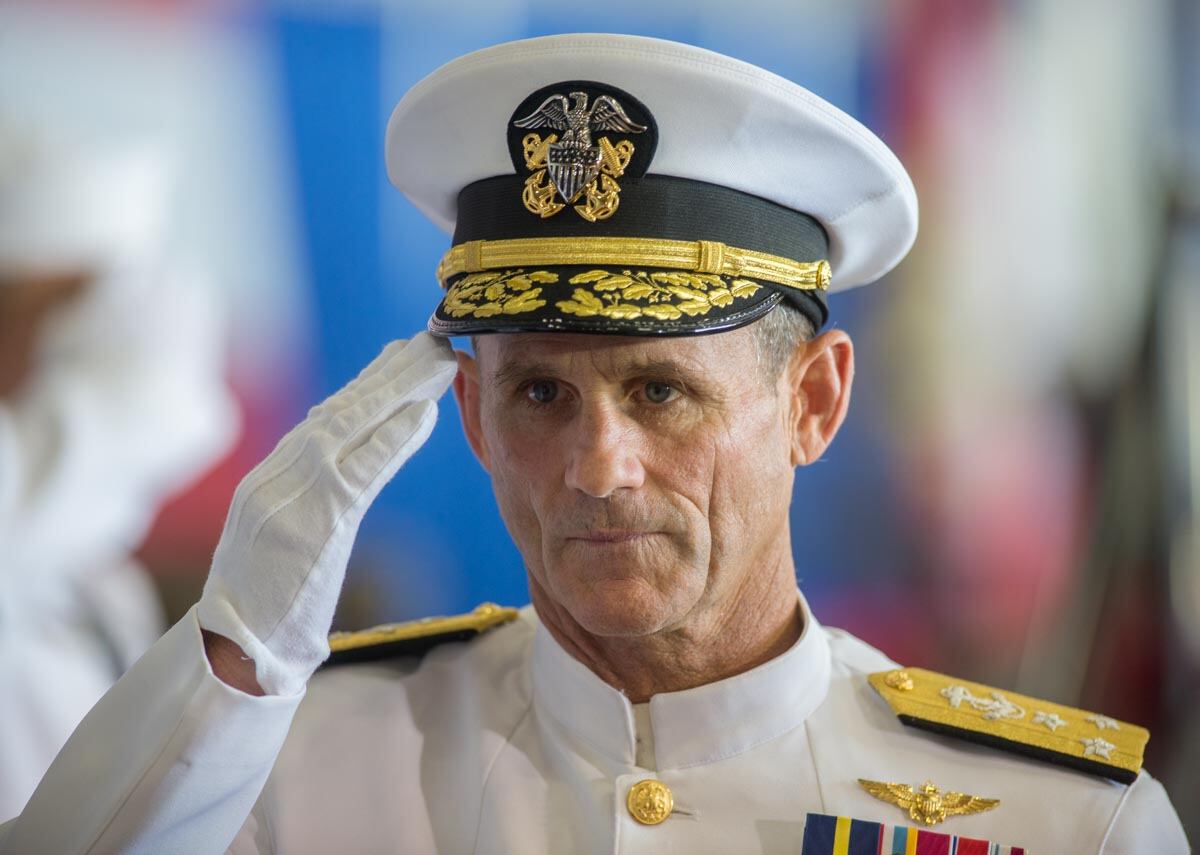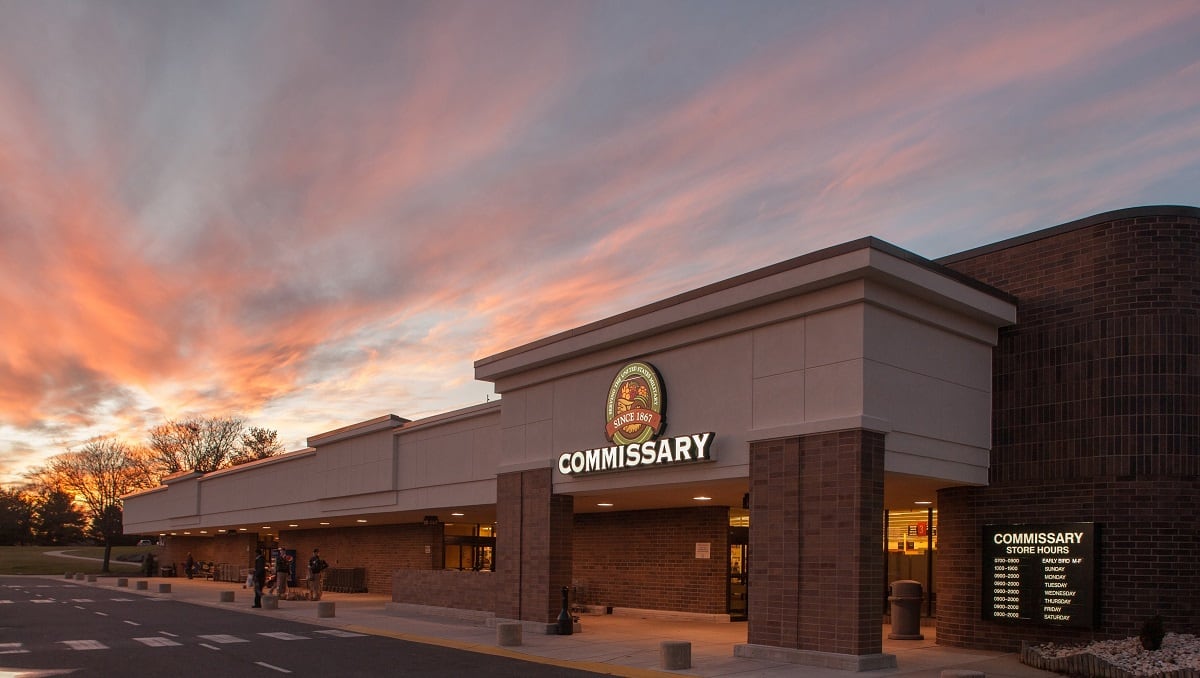The head of the Navy’s newly resurrected 2nd Fleet warned Wednesday of Russian submarine activity in the Atlantic Ocean, the latest senior military leader to sound the alarm in recent months.
“Let’s be frank, the Russian undersea threat is real,” Vice Adm. Andrew “Woody” Lewis said at a maritime security event hosted by the Center for Strategic and International Studies in Washington. “They are very competent.”
The re-establishment of 2nd Fleet on Aug. 24 to oversee the Atlantic and Arctic Oceans was the Navy’s first step in reasserting itself in waters long-traveled by the Navy during the Cold War.
As a Cold War with Russia grew cooler in early 1950, the Navy created the 2nd Fleet to check Moscow’s designs on the Atlantic Rim, especially Europe.
The Navy disbanded it in 2011 and folded most of its personnel, warships and responsibilities into Fleet Forces Command, part of a Pentagon shift in focus toward counter-terrorism efforts in the Middle East and Afghanistan and a pivot to the western Pacific as China’s military power rose.
Lewis said his revived 2nd Fleet will reach full operational capability next year.
RELATED

While Navy leaders like Lewis have mainly pointed at Russia’s subs prowling the Atlantic and Arctic, Lewis said Wednesday that China is “aspirationally in the Arctic,” as well.
“There’s no question the logical sequence of events with China is they will be there militarily, as well,” he said.
Operating in colder northern waters will represent a stark change to what rank-and-file sailors are used to, said Lewis, a career aviator. He pointed to the recent NATO exercise Trident Juncture, which featured maritime maneuvers that often strayed above the Arctic Circle.
“Blowing gales, decks moving around, ships getting beat up and people getting beat up,” Lewis said. “They adapt really quickly, but not without repeat effort.”
One of the casualties was the amphibious dock landing ship Gunston Hall, which left Iceland’s capital of Reykjavik on Nov. 5 after undergoing repairs for damage caused by heavy seas shortly before Trident Juncture kicked off.
Overall, Lewis said the Navy did “pretty well” at Trident Juncture, “but we could do better.”
Learning to do better is a key part of his new job, Lewis said. Since the Navy relaunched 2nd Fleet, he’s had to learn about his service’s blind spots in the region. It’s why he and his leadership team have been talking to the U.S. Coast Guard, the Canadians, Norwegians and other allies to better understand the Arctic, he added.
Lewis said 2nd Fleet will count about 80 staff members by early next year. He plans on keeping his team “lean and agile” as it spearheads what other flag officers have dubbed “the fourth battle of the Atlantic.”
Lewis said that his team is weighted toward intelligence, operations, planning, training and logistics experts, while letting U.S. Fleet Forces Command oversee “higher headquarters housekeeping functions."
Several staffers will operate forward from a ship or at an austere location, Lewis said, and he plans to pepper the team with military members from allied nations to supply special knowledge on his area of responsibility.
RELATED

The re-establishment of 2nd Fleet occurred shortly after NATO launched a new Joint Force Command in Norfolk, which Lewis also helms.
Lewis foresees a fusion of operations and intelligence analysis similar to the U.S. 5th Fleet’s model but conceded "we’ve got a lot of work to do” when it comes to domain awareness.
That’s a term often used by strategists to describe how information is gathered, analyzed and shared so that maritime forces can prepare for and respond to everything from natural disasters and protecting the free flow of commerce to countering piracy, rescuing mariners and waging war at sea.
“There’s an element of tapping into artificial intelligence and machine learning, in which we are starting to make some inroads in there, but it’s not going as quickly as we need it to go,” Lewis said.
Noting that Navy intelligence operations have focused for nearly two decades on countering terrorism, Lewis said that his 2nd Fleet will aim to rebalance their efforts.
“Capacity is lacking a little bit. We’re trying to build that capacity," he said.
Geoff is the managing editor of Military Times, but he still loves writing stories. He covered Iraq and Afghanistan extensively and was a reporter at the Chicago Tribune. He welcomes any and all kinds of tips at geoffz@militarytimes.com.





